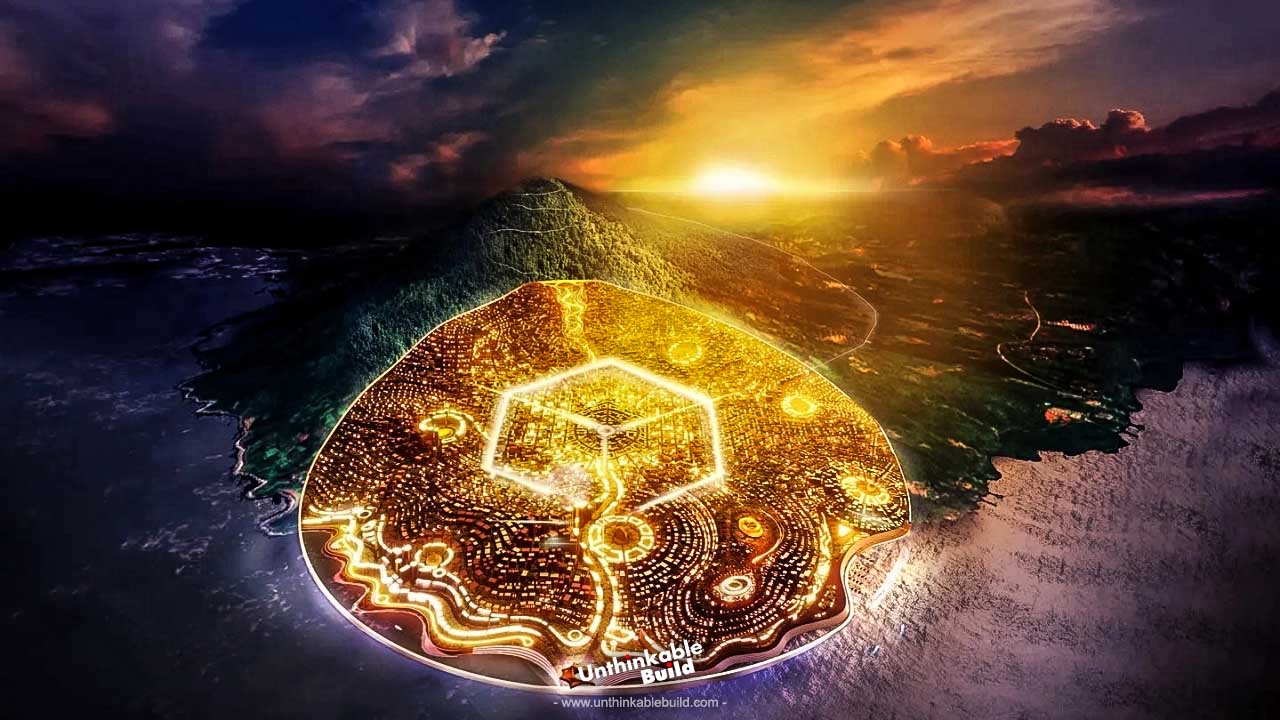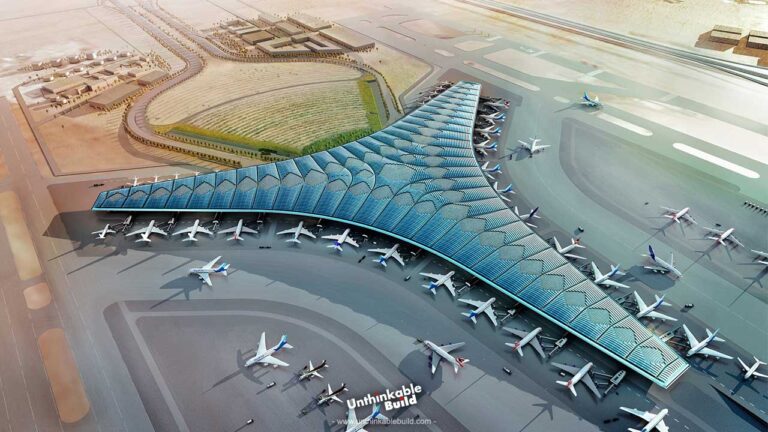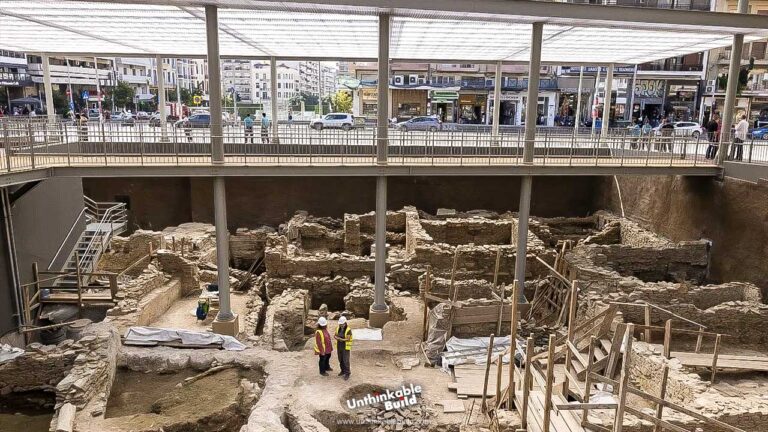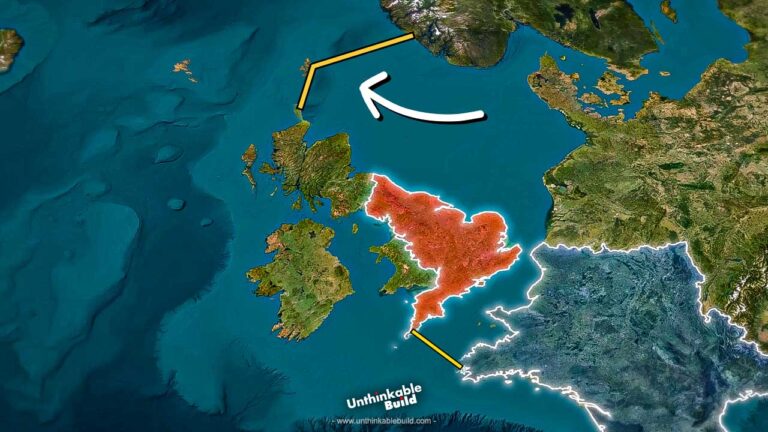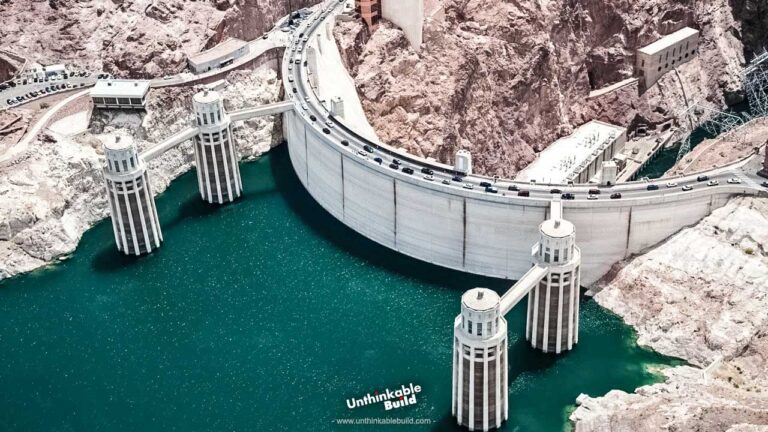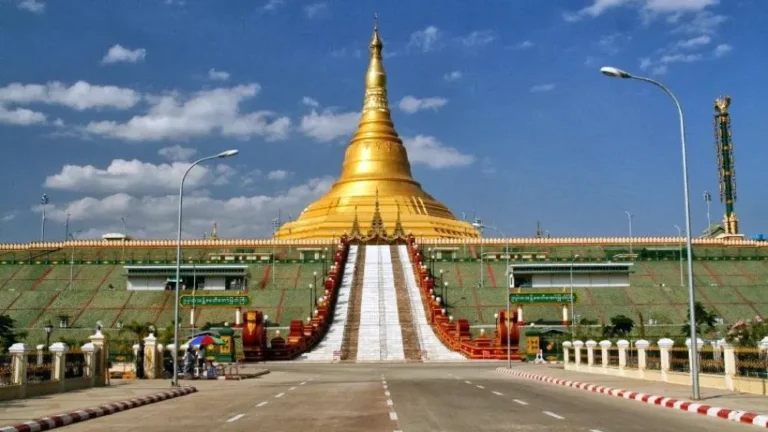Inside the World’s First $17BN Bitcoin City
This is Bitcoin, a crypto currency that functions like traditional money, allows people to make purchases both online and in person.
Now, picture a futuristic city that is shaped like Bitcoin itself. In this city, there are no taxes, zero emissions, and everything runs on renewable energy. It’s a concept of what could be—where technology, sustainability, and financial freedom all come together.
The line between fantasy and reality is about to blur with the creation of a futuristic city. Rising from El Salvador—a Central American country that once faced the devastation of civil and gang wars from 1980 to 1992—this remarkable transformation is set to bring an innovative city to life. It’s a symbol of optimism and revival, marking a fresh chapter for this land.
El Salvador ranks as the fourth-largest economy in Central America, with a GDP per capita of $5,537. Even after enduring nearly 12 years of civil war and its lasting impacts, the country is now ready to make a transformative move that promises to be a game changer for its 6.3 million people.
So, what ignited the change that has lifted this country out of poverty and corruption, setting it on a path toward development and modernization?
Like many developing countries, El Salvador has faced its share of political unrest, corruption, and mismanagement. On top of that, gang violence has turned it into one of the most unsafe places in the world, with an average of 18 deaths a day in 2015 — more than even some active war-torn areas.
Also Read: Chenab Rail Bridge: India Opens World’s Highest Railway Bridge in Kashmir
In such a challenging situation, businesses were hit hard, unemployment surged, and the well-being took a nosedive. Yet, today, El Salvador has turned things around and is now listed among the safest countries in the world. This remarkable change is a testament to the brave and effective decisions made by its people.
Nayib Bukele, 37 years old president of the country, who had quickly won his people’s support, jumped into action with a range of ambitious infrastructure projects as soon as he took office. One of his most notable decisions taken in June 2021 was to make Bitcoin legal tender in the country, a groundbreaking move that made El Salvador the first nation in the world to embrace the crypto currency in this way.
Salvadorians were increasingly fed up with the two main political parties, which had repeatedly won elections but failed to improve the country’s economic struggles. Amid this frustration, Nayib Bukele, who had been the mayor of San Salvador from 2015 to 2018 and led a suburb between 2012 and 2015, began to stand out. His fresh approach and growing popularity led him to start his own political party in 2018. In June 2019, Nayib Bukele had won the presidential election with more than 50% votes and become the youngest president in the country’s history, promising a new direction for El Salvador.
Bukele’s campaign was driven by a promise to break away from a 30-year-old status quo and offer new solutions to persistent problems in the country. One of his most talked-about decisions was declaring a state of emergency in 2022, which gave the police sweeping powers to arrest anyone suspected of gang involvement. This move was highly controversial, sparking debate about its impact on civil liberties and the balance between security and personal rights. But as a result of these bold steps, the country is seeing resurgence in tourism, and foreign investment is beginning to pour in, bringing new life and opportunities to its people.
El Salvador’s journey of transformation, fueled by innovative steps by Nayib Bukele like adopting Bitcoin, is creating a ripple effect that’s reshaping its future. This legislation is set to make a real difference in people’s lives, bringing financial inclusion, investment, tourism, innovation, and economic growth to the country. With around 70% of Salvadorians lacking access to a bank account, this new policy to adopt Bitcoin is designed to bridge that gap, offering financial services and empowering everyday citizens with the financial knowledge they need to flourish.
As part of the Bitcoin law, El Salvador made a bold move by investing public funds. Just before the law took effect, the country bought 400 Bitcoins, spending nearly $21 million. Although the intentions behind this investment appeared promising, the outcomes and reactions have been mixed.
Now let’s talk about the Bitcoin City, one of the various infrastructure projects initiated by Nayib Bukele’s administration, which aimed at promoting economic growth and technological innovation.
This exciting new smart city is set to take shape in La Union, the southeastern region of El Salvador. While many details are still under wraps, we do know the city will have a striking design, featuring a giant circular layout that looks like a massive Bitcoin logo. The city will offer all the usual amenities. It seems that Bitcoin will play a central role in this city, with most transactions likely handled through this digital currency, all to draw in potential investors.
Also Read: Inside Taiwan’s Longest Cable Stayed Bridge in the World
The Bitcoin city is set to redefine the idea of a tax haven. With no income, property, or city taxes for business and residents, the only tax will be VAT, used to cover bonds and maintain the city. This innovative approach aims to attract people and investors by offering a virtually tax-free environment.
The Bitcoin City will rely entirely on geothermal energy from the nearby Conchagua volcano, to ensure a sustainable and eco-friendly power source. This entire project is estimated to cost around 300,000 Bitcoins, that is equal to over $17 billion at the time of announcement. To fund this enormous undertaking, the country plans to issue “volcano bonds” worth $1 billion. Half of this money will be invested in Bitcoin, and the rest will be used for construction and setting up Bitcoin mining operations. The concept is that if Bitcoin’s value rises, the mined crypto currency can help repay the bonds and support further development.
El Salvador is already testing the model with a similar volcano-based Bitcoin mining project that has yielded 474 Bitcoins worth about $30 million. Despite these efforts, Bitcoin City’s construction has been delayed, partly due to Bitcoin’s price drop after the announcement in November 2021. So far, only the Bitcoin City Airport has been developed, and the expected volcano bonds which were supposed to be issued in 2022, have not been released.
On a positive note, Bitcoin’s recent all-time highs have improved the value of El Salvador’s reserves by about $55 million. With President Nayib Bukele re-elected in February 2024, it is anticipated that Bitcoin will remain central to El Salvador’s plans. As the country starts to benefit from its Bitcoin investments, more updates on Bitcoin City’s progress may emerge in forthcoming days.
How do you feel about El Salvador’s bold choice to embrace Bitcoin as a cornerstone of its economic strategy? Do you think Bitcoin City could be the game-changer that turns El Salvador into a regional powerhouse?

